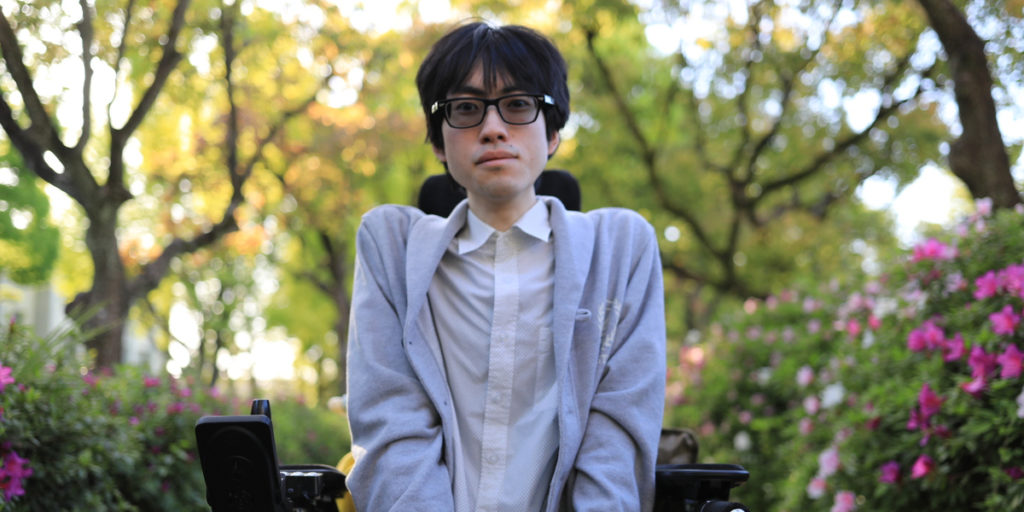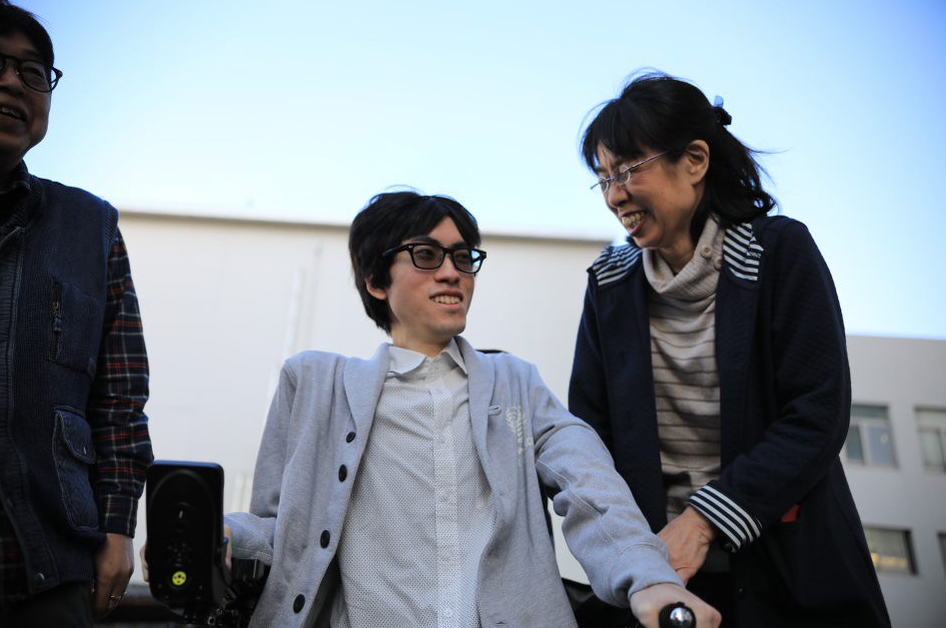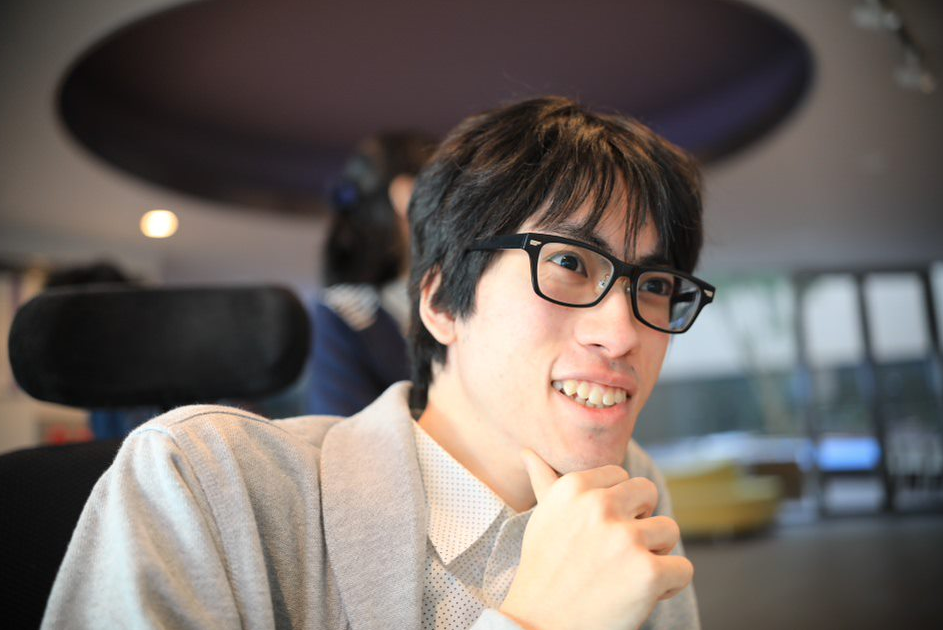
Hiroki, Age 26
Nagoya, Japan
The flowering bushes and cherry blossom trees on the Nagoya University campus bloom in deep shades of pink and white. Hiroki maneuvers his wheelchair with ease through the familiar gardens, gazing pensively at the world around him. At university he studies the structures of proteins whose woven strands hold the codes that give life to everything, from the azaleas to human beings. These same strands, when altered by a single mutation, can also give rise to disease. Hiroki knows this experience firsthand. He lives with Pompe disease, which has affected every aspect of his life and inspired his passion for science; specifically, bioinformatics.
From infancy, Hiroki showed signs of illness that bewildered his doctors and frightened his young parents. His mom, Kazumi, recollects holding him, his tiny body burning and flush with frequent unexplained fevers from as young as one month old. As he grew, his limbs started to become weak due to weakness in his muscle tone. With fear in their hearts, his parents brought him to Osaka University Hospital where they did a biopsy of muscle tissue and diagnosed him with Pompe disease at the age of one. “We lived in Osaka then,” explains Kazumi. “We had no idea what Pompe disease was and were told that there was no treatment for it. We were devastated. There was no internet. We tried to look for information, but couldn’t find anything.” At that point, all the doctors could do for Hiroki was bring his fever down and treat his symptoms with pain medication. Pompe disease, his parents learned, is a rare, genetic disorder that causes progressive muscle weakness and loss of control over one’s breathing. Eventually the disease also destroys liver, heart and muscle function. Hiroki’s parents were shaken with the news that their beloved little boy, who was just learning to walk and speak his first words, faced a life fraught with pain and illness.
Hiroki courageously adjusted to his changing physical abilities. He made friends at school, became an ardent student with an expanding interest in science and attended conferences with other people living with Pompe. His parents beamed with pride over his achievements. They rarely spoke about the deterioration or difficulties that lay ahead. The flipside of this optimism was that they also never spoke of the potential of death. It was a taboo subject––one they knew could only be kept in the dark for so long. Kazumi recalls the sobering day that Hiroki learned Pompe was a terminal illness. “There was a TV documentary about Pompe disease. Usually the Pompe patient organization would contact us about a show like this, but this time we hadn’t heard about it, so it was by chance that we were watching it. Hiroki knew he had Pompe, but didn’t know much about it and didn’t know that it could be fatal. As we watched the documentary, there was a patient with a few months of life left. I was frozen. I kept looking at Hiroki’s face.” Hiroki took a deep breath, searching for the right words. “If the doctor says I have X amount of time to live,” he said firmly, “I want to know, because there is a lot left that I want to do with my life.”




